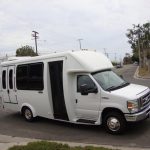Nyle DiMarco, a reality TV star and Deaf activist, has recently spearheaded the launch of reality TV show Deaf U, which follows the personal lives of college students at Gallaudet University. Gallaudet, DiMarco’s alma mater, bills itself as the world’s only Deaf university. DiMarco says he hopes the show reveals “as many Deaf stories … all as real as possible.”
A lawsuit alleging Cape Henlopen School District was discriminating against students who participated in remote learning rather than hybrid remote and in-person learning was resolved before trial and dismissed. The district agreed the student who brought the suit may attend in-person classes via Zoom, thus receiving some of the benefits of in-person instruction.
Of the 45 states that require voters to apply to receive an absentee ballot, 43 states – including Delaware – have at least one accessibility barrier that could prevent people with certain disabilities from successfully submitting their request. This information was uncovered by Deque Systems, a digital accessibility firm, which is offering free-of-charge accessible versions of the PDFs states use as absentee applications.
The Delaware Transit Company recently won a federal grant to create a rural public transportation program that incorporates characteristics of ride-sharing services like Uber to speed up service and enhance accessibility. The program will make use of traditional buses and smaller vehicles and route requests through a smartphone app and telephone service. The yearlong pilot is scheduled to begin in late spring 2021.
As of October 1, the 20-year-old federal Interagency Autism Coordinating Committee (IACC) has been inoperative for one year. The IACC’s previous members, drawn from federal agencies and the autism community, saw their terms of service expire at the end of September 2019 and, to date, no new members have been appointed. A National Institute of Mental Health executive said the process of selecting new members is underway.





